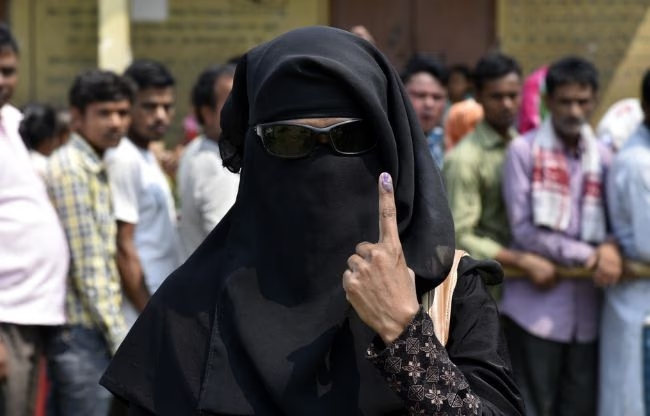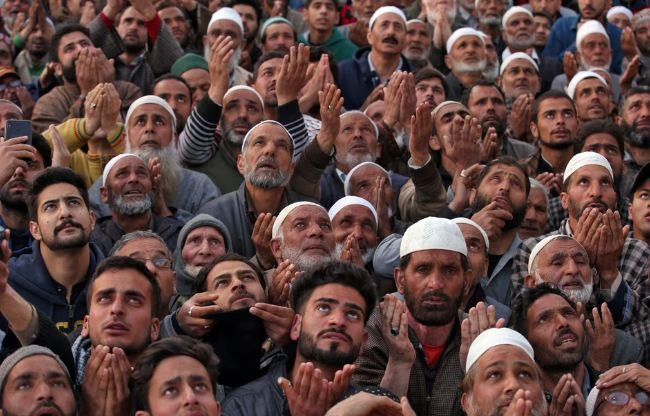As election fever rises, the debate over Muslim reservations has intensified across the country. On one side, the BJP accuses the opposition of promising reservations for Muslims, while on the other, opposition parties openly support it. Prime Minister Narendra Modi and BJP leaders have accused the Congress of providing reservations based on religion in their rallies. Amidst this, former Chief Minister of Bihar and RJD leader Lalu Prasad Yadav has openly advocated for full reservations for Muslims.
On Tuesday, Lalu Yadav remarked that the BJP is scared and merely provoking people, aiming to dismantle the Constitution. He stated that Muslims deserve complete reservations, leading the BJP to target the entire opposition.
This isn’t the first time that Muslim reservations have become a hot election topic. Last year, during the assembly elections in Karnataka and Telangana, this issue was highlighted. During a rally, Amit Shah stated that reservations for Muslims are unconstitutional.
So, what does the Constitution say about Muslim reservations? In which states do Muslims receive reservations? And do those who convert to Islam also benefit from these reservations?
Read More: The Seat in Kashmir, How Demographies Changed Post-Article 370, and the Uproar Over Postponed Voting Dates
What is the Framework for Muslim Reservations?
At both the central and state levels, several Muslim communities are provided OBC (Other Backward Classes) reservations. According to a report, 36 Muslim communities currently receive OBC reservations at the central level.
Article 16(4) of the Constitution provides for this. It states that if the government believes any section of citizens is underrepresented, reservations can be given for fair representation in employment.
According to the report, categories 1 and 2A of the central OBC list include 36 Muslim communities. However, families with an annual income exceeding eight lakhs are considered in the 'creamy layer' and are ineligible for reservations, despite belonging to a backward class.
Why Talk About Muslim Reservations?
Several government reports suggest that Muslims are socially, educationally, and economically backward. The Sachar Committee Report of 2006 highlighted that the Muslim community lagged behind even Hindu OBCs. It indicated that while Hindu backward classes and Dalits benefited from reservations, Muslims did not.
Earlier, the Mandal Commission had identified 82 social groups it considered backward Muslims.
In 2009, a committee led by retired Justice Ranganath Mishra also advocated for Muslim reservations. The committee suggested a 15% reservation for minorities. Out of this, 10% was recommended for Muslims and 5% for other minorities.
Read More: Elections Commission's Stand on AAP's Song – 'We'll Respond to Jail with Votes' and Why EC Objected

Source: aajtak
In Which States Do Muslims Have Reservations?
Many states in India provide reservations for Muslims under the OBC category. In Kerala, OBCs receive a 30% reservation, within which Muslims receive specific quotas. Here, Muslims get an 8% job quota and a 10% higher education quota.
Similarly, in Tamil Nadu, backward class Muslims receive a 3.5% reservation, covering about 95% of Muslim communities.
In Bihar, some Muslim communities are categorized as 'most backward classes,' receiving 18% reservations. Last year’s caste survey in Bihar classified 73% of Muslims as 'backward classes.'
In Karnataka, all Muslims receive a 4% reservation. Karnataka offers a 32% reservation for OBCs, with all Muslim communities included in category 2A, thereby granting them a 4% reservation.
What Went Wrong in Andhra Pradesh?
Efforts to provide reservations for Muslims in Andhra Pradesh faced legal challenges. The first attempt came in 2004, when the government sought to provide a 5% reservation under the OBC quota citing socio-economic and educational backwardness, but the court nullified it.
The state's backward class commission categorized all Muslims as backward in 2005, which led to a renewed 5% reservation attempt, again struck down by the court.
In 2010, the state tried to provide 4% reservations for some Muslim communities, but the court rejected this for lack of a preceding survey. The matter of Muslim reservations in Andhra Pradesh is currently pending before the Supreme Court.
Meanwhile, TDP chief and former Chief Minister Chandrababu Naidu has promised a 4% reservation for Muslims in Andhra Pradesh.
Read More: Elections Commission's Power – From Removing Bal Thackeray's Voting Rights to Notices for Modi and Rahul Gandhi's Statements

Source: aajtak
How Do Muslims Receive These Reservations?
The Indian Constitution speaks of equality but does not provide for reservations based on religion. It states that reservations can be given to bring any backward section into the mainstream, regardless of religious identity.
In the 1992 Indira Sawhney vs. Central Government case, the Supreme Court clarified that backward classes include any socially backward group, irrespective of religion.
Currently, Muslims receive reservations through a sub-quota system within the existing quotas. Communities within the Muslim population identified as SC, ST, or OBC receive reservations under these categories. There is no separate quota solely for Muslim communities.
For instance, in Kerala, Muslims receive an 8% higher education reservation within the 30% OBC quota.
What About Converted Muslims?
If a Dalit converts to Islam or Christianity, do they receive reservation benefits? This issue is also before the Supreme Court.
Several petitions demand that Dalits who convert to Islam or Christianity receive SC status and associated benefits, including reservations.
These petitions also challenge the Constitution (Scheduled Castes) Order, 1950, which restricts SC status to Dalits of Hindu, Sikh, and Buddhist faiths.
Last April, the central government opposed these petitions, stating that the 1950 order, which excludes Christians and Muslims from SC status, is not unconstitutional as these religions do not practice 'untouchability.'
In 2007, the Justice Ranganath Mishra Commission recommended SC status for Dalit Muslims and Christians, but the government rejected these suggestions as flawed.
Last April, the central government requested a decision on petitions regarding SC status for converted Dalit Muslims and Christians be deferred until a report by a committee led by former Chief Justice KG Balakrishnan was received.
The Supreme Court's decision will determine whether Dalits who convert to Islam or Christianity will receive SC status.




